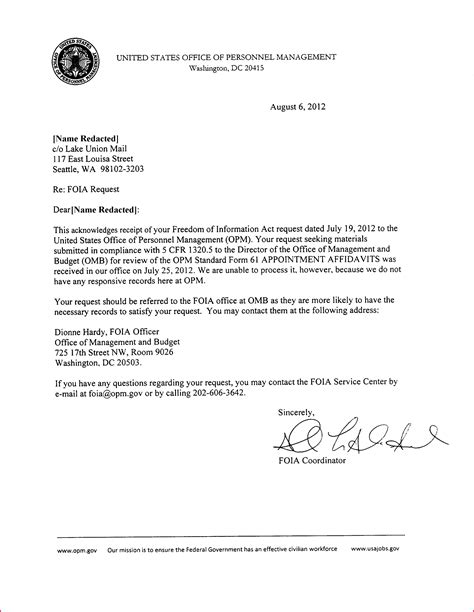Understanding Letter Of Reconsideration Of Appeal (Sample)

Have you ever received a decision that you strongly disagree with? Whether it’s a denial of a job application, a rejection from a university, or the denial of a loan, it can be disheartening. But don’t lose hope just yet! In many cases, you have the option to write a letter of reconsideration of appeal to the decision-maker. In this article, we will guide you through the process of writing a compelling letter of reconsideration of appeal.
1. Understand the Purpose of the Letter
Before you start writing your letter of reconsideration of appeal, it’s important to understand its purpose. The purpose of this letter is to present your case to the decision-maker and convince them to reconsider their initial decision. It’s your opportunity to provide additional information, clarify any misunderstandings, or present new evidence that may change their perspective.
2. Follow the Proper Format
When writing your letter of reconsideration of appeal, it’s important to follow the proper format. Start with a formal salutation, such as “Dear [Decision-Maker’s Name].” Then, clearly state the purpose of your letter in the opening paragraph. Use paragraphs to present your arguments and evidence in a logical and organized manner. Finally, end the letter with a polite closing and your contact information.
3. Present Your Case Clearly
In order to convince the decision-maker to reconsider their initial decision, you need to present your case clearly. Clearly state the decision you are appealing, provide a brief explanation of why you disagree with it, and outline the reasons why you believe the decision should be reconsidered. Be concise and to the point, but also provide enough detail to support your arguments.
4. Provide Supporting Evidence
One of the most important aspects of your letter of reconsideration of appeal is providing supporting evidence. This can include documents, testimonies, or any other form of evidence that strengthens your case. Make sure to clearly reference and attach these supporting documents to your letter.
5. Address Counterarguments
Anticipate any counterarguments that the decision-maker may have and address them in your letter. This shows that you have carefully considered the decision from all angles and have valid responses to any potential objections. By addressing counterarguments, you strengthen your case and demonstrate that you have thoroughly thought through your appeal.
6. Use Professional and Polite Language
When writing your letter of reconsideration of appeal, it’s important to use professional and polite language. Avoid using aggressive or confrontational language, as this can harm your chances of getting a favorable response. Instead, choose your words carefully and maintain a respectful tone throughout the letter.
7. Proofread and Edit
Before sending your letter of reconsideration of appeal, make sure to proofread and edit it carefully. Check for any spelling or grammar errors, and ensure that your arguments are clear and well-structured. A well-written and error-free letter will make a better impression on the decision-maker and increase your chances of success.
8. Follow Up
After sending your letter of reconsideration of appeal, it’s important to follow up with the decision-maker. Send a polite email or make a phone call to inquire about the status of your appeal. This shows your continued interest and determination, and may also provide an opportunity for further discussion or clarification.
9. Seek Professional Help if Needed
If you feel overwhelmed or unsure about writing your letter of reconsideration of appeal, don’t hesitate to seek professional help. There are professional writers and consultants who specialize in writing appeal letters and can provide valuable guidance and support. They can help you craft a compelling letter that maximizes your chances of success.
10. Stay Positive and Hopeful
Finally, it’s important to stay positive and hopeful throughout the process. Receiving a denial can be discouraging, but it’s essential to maintain a positive mindset and believe in the power of your letter. A well-written and persuasive letter of reconsideration of appeal can make a significant difference and potentially change the decision in your favor.
Conclusion
Writing a letter of reconsideration of appeal can be a daunting task, but with the right approach, it can also be a powerful tool to challenge a decision. By understanding the purpose of the letter, following the proper format, presenting your case clearly, providing supporting evidence, addressing counterarguments, using professional and polite language, proofreading and editing, following up, seeking professional help if needed, and staying positive and hopeful, you can increase your chances of success.
Frequently Asked Questions (FAQs)
-
What should I do if I receive a denial?
If you receive a denial, take some time to gather your thoughts and emotions. Then, carefully review the decision and determine whether you have valid grounds for appeal. If you believe that you do, proceed with writing a letter of reconsideration of appeal.
-
How long should my letter of reconsideration of appeal be?
Your letter of reconsideration of appeal should be concise and to the point. Aim for one to two pages, depending on the complexity of your case. Be sure to include all relevant information and supporting evidence, but avoid unnecessary details or repetition.
-
Can I send additional supporting documents with my letter?
Yes, you can and should send additional supporting documents with your letter of reconsideration of appeal. Make sure to clearly reference and attach these documents so that the decision-maker can review them alongside your letter.
-
What if my appeal is still denied?
If your appeal is still denied, you may have other options available to you, such as seeking legal advice or pursuing a different course of action. Consider consulting with a professional who can provide guidance based on your specific situation.
